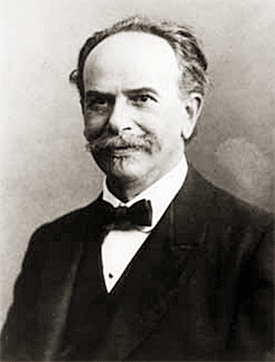Franz
Boas
Germany was the birthplace to Franz Boas, in 1858. He spent a
great deal of his youth studying natural sciences, and had his
Ph.D. in the field of physics before he joined the military. After
his military time, he traveled to Berlin to continue his studies.
He planned his first year-long expedition in 1883, to northern
Canada's Baffin Island. The unique Inuit culture fascinated him.
|
|
 Franz
Boas
Franz
Boas |
Boas collected much data beyond what the project required, and
this was the beginning of a life-long study of various ways in
which people live. He taught university geography in Berlin when
he returned to Germany. He stopped over in 1886 in New York City,
after visiting another British Columbian tribe, and was taken
with the city so much so that he moved there. He was the editor
of Science magazine. He taught at Worcester, Massachusetts' Clark
University.
At the same time, he was working on a project that would help
in bringing Native American culture to the forefront of public
knowledge. He determined that "Civilization is not something
absolute, but … is relative, and … our ideas and conceptions are
true only so far as our civilization goes."
Boas lectured at the campus of Columbia University in 1896 and
later was appointed as a professor of anthropology at the school.
He would go on to establish their anthropology department within
nine years. It was the first anthropology department in the U.S.
As a researcher, Boas contributed to various aspects of anthropology,
becoming its most famous figure by 1900. He was also an influential
teacher in archeology, cultural anthropology, linguistics and
physical anthropology, which are anthropology's four subdivisions.
"The Mind of Primitive Man", by Boas, was published
in 1911, and taught about race and culture. He disagreed with
the theory common at the time, which was that Western civilization
was superior to societies that were not as well developed. Indeed,
the book was so controversial that his University of Kiel, Germany,
Ph.D. would be rescinded.
Boas updated and expanded "The Mind of Primitive Man"
in the year 1937, and went on in 1940 to publish "Race, Language
and Culture". He spoke out against the Nazi ideology that
was coming to power before World War II, and he lectured in many
locations to help in educating the general public to the dangers
posed by the Nazi regime.
Anthropology was eclectic and holistic to Boas, and he made it
clear that people needed to become familiar with nutrition, biology,
human migration, disease and customs in child-rearing to express
valid anthropological theories. He was able to influence the views
of other scientists, who would realize that the differences found
among different races did not arise from factors that were physiological
in nature, but rather from historical circumstances and events.
Before he died in 1942, Boas had contributed much to each of
the four anthropological branches, with studies that ranged from
linguistics to racial classification. He was influential among
researchers and scholars both during his lifetime, and those who
would study that field after his death. Those affected included
W.E.B. Du Bois and Margaret Mead. He was a true pioneer in anthropology.
Rumor Has It …
Franz Boas was afraid of snakes. In fact a boa constrictor once
sent Franz Boas screaming and jumping into his mommy's lap. He
was 40-years-old at the time. And zombies. He didn't like zombies.
Written by Kevin Lepton
|

